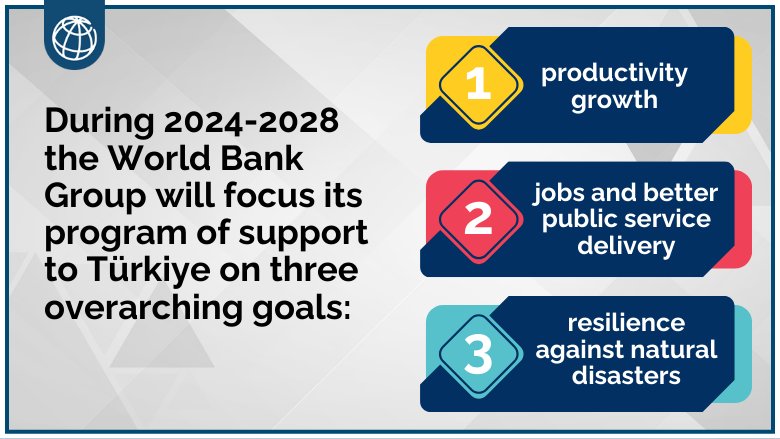The Türkiye Country Partnership Framework (CPF) is the World Bank Group (WBG) strategy to deliver impactful solutions at greater scale and speed in Türkiye over FY24-FY28. The CPF is fully aligned with the WBG mission and the Government of Türkiye’s 12th National Development Plan (NDP) 2024-2028. It aims to realize Türkiye’s long-term potential, accelerate progress towards the country’s efforts to reach high-income status and support recovery and reconstruction from recent shocks. The CPF outlines how the WBG will further scale up impact in one of its largest country portfolios to meet priority country and global challenges.
A key focus of the CPF is to help the country mobilize private capital to address key emerging challenges on the growth, poverty and inclusion, and sustainability fronts.
During the CPF period, the WBG will focus on selected challenges under three broad areas:
- High and sustainable productivity growth: The focus will be on promoting climate-smart agriculture to strengthen resilience against climate change and bolster food security; greening the industrial sector to reduce carbon emissions and maintain trade competitiveness; supporting economic recovery in areas affected by the February 6, 2023 earthquakes.
- Inclusive services and jobs: To address income and other inequalities, the focus will be to improve jobs for women, youth and vulnerable groups; reduce disparities in health and education access and quality; and support resilient municipal infrastructure and services.
- Strengthen resilience against natural disasters: To help protect Türkiye’s people and economy, the World Bank Group will prioritize disaster resilience and preparedness, management of natural resources and the transition to clean energy.
